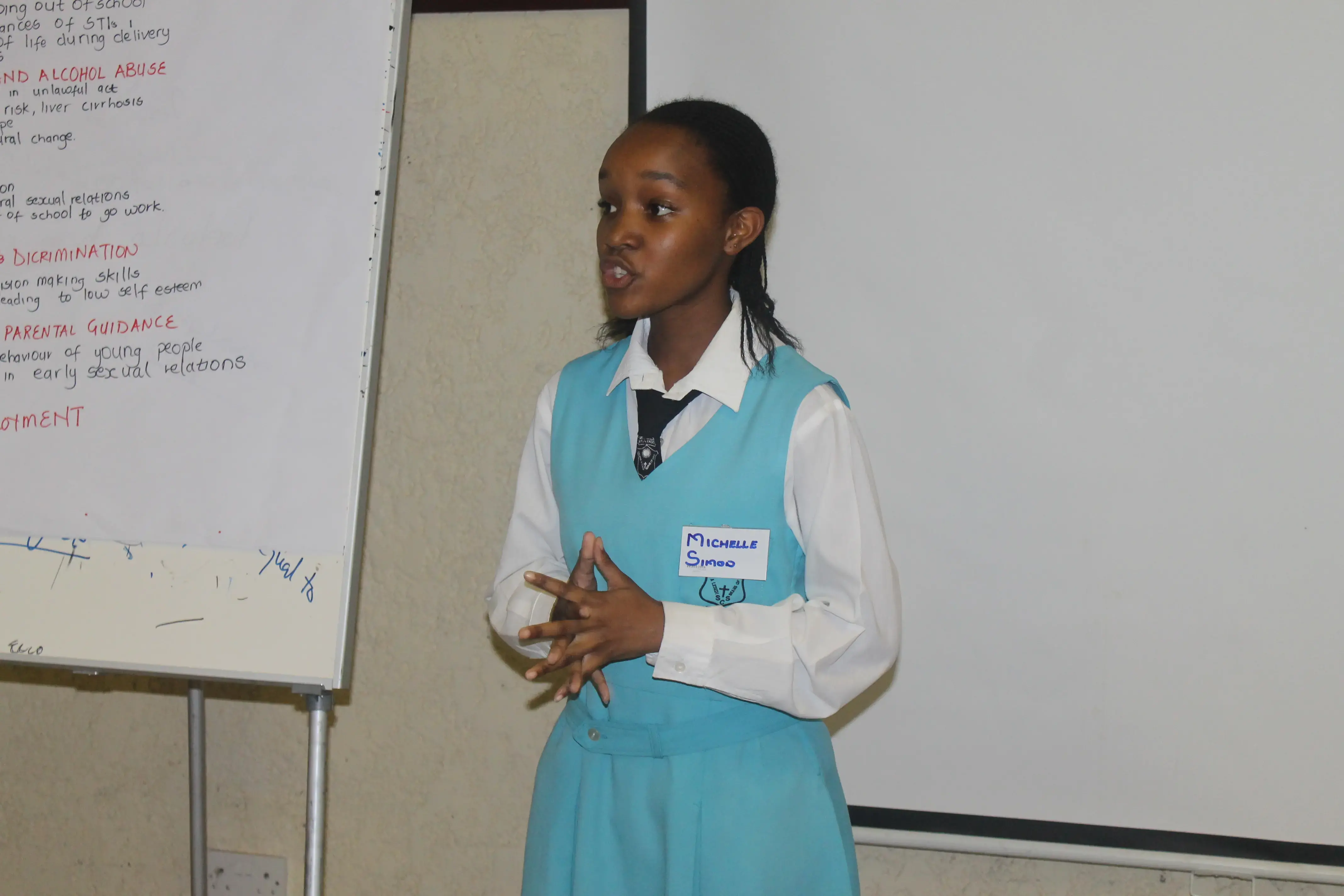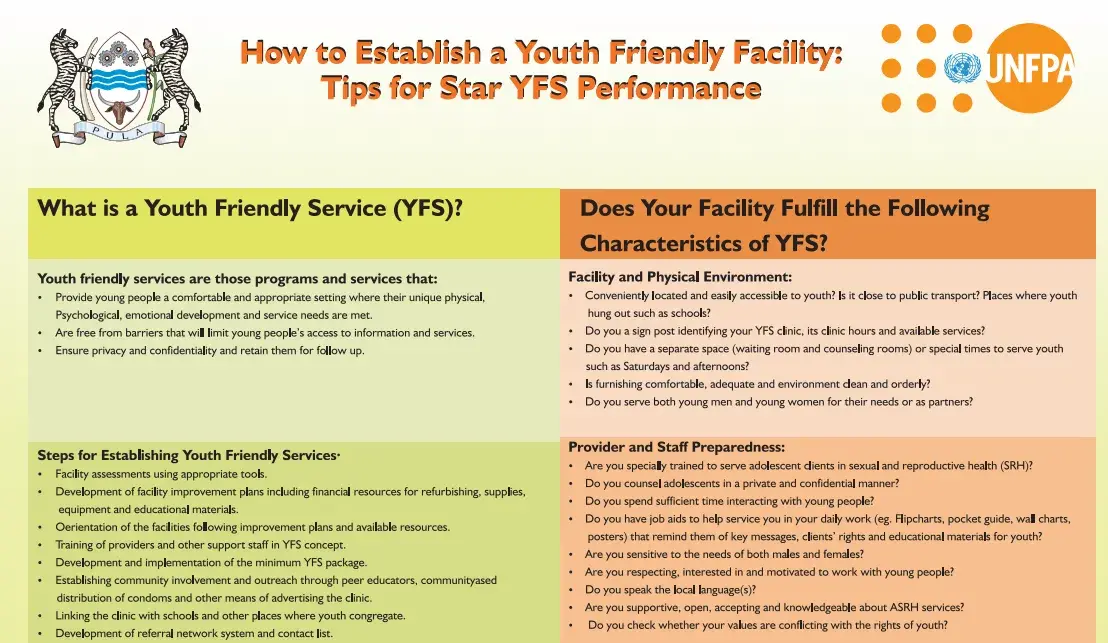Over 60% of the population in Botswana is below 35 years – and this proportion is growing. A great deal is said about the importance of youth participation and voice. In reality, however, youth – particularly adolescent girls and young women rarely have opportunities to train and act as leaders or as advocates in places where the decisions that affect their lives and their human rights are made.
UNFPA actively engages young people in its own work and advocates for their participationin the work of partners. UNFPA also builds capacity of young people in leadership and meaningful participation and advocacy on development of the country as well as their access to sexual and reproductive health services.
If young people are given the right opportunities, they can be drivers of change. They will have the capacity to advocate for their issues such as access to quality education, including comprehensive sexuality education, youth-friendly services, employment and self-employment as well as overall development of their countries. UNFPA supports youth networks such as Youth Advisory Panel that advises the CO on its work.
UNFPA’s focus on adolescents and youth is based on the recognition that young people have been virtually ignored in policies and programmes. And that this period of their lives is a critical transition between childhood and taking on adult responsibilities.
UNFPA recognizes that young people are diverse. The needs of a 12 year-old girl are very different from those of a 24 year-old male. Effective policies and programmes for adolescents and youth take this diversity into account.
UNFPA’s Framework for Action on Adolescents and Youth articulates the organization’s multisectoral strategy to promote the comprehensive development of young people worldwide. Its four pillars include:
- addressing population, youth, and poverty issues at the policy level;
- expanding access to gender-sensitive, life skills–based sexual and reproductive health including HIV education in schools and community settings;
- promoting a core package of health and sexual and reproductive health/HIV services;
- encouraging young people’s leadership and participation within the context of sector-wide approaches, poverty reduction strategies and health sector reforms
The framework also calls for upholding the rights of young people, and especially for marginalized groups and adolescent girls.



